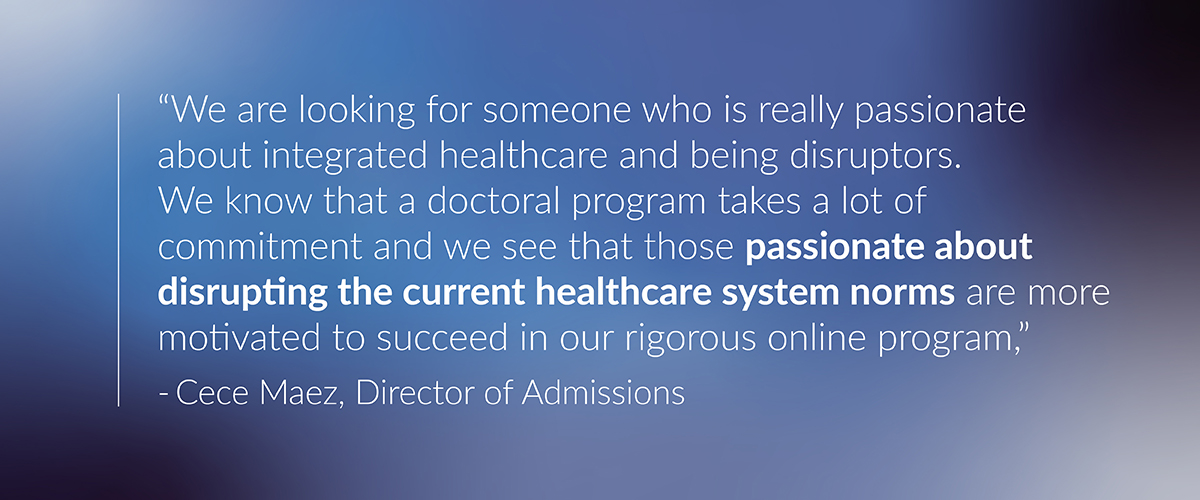
 At Cummings Graduate Institute, the Doctor of Behavioral Health (DBH) program admissions process is designed to be clear, supportive, and human-centered from start to finish. Director of Admissions Cece Maez explains, “We choose to look at an applicant holistically. We know that you may have been out of school for 1 year to 30 years, and we are there to answer your questions along the way… We are really interested in getting to know you and what you would like to accomplish with a DBH.”
At Cummings Graduate Institute, the Doctor of Behavioral Health (DBH) program admissions process is designed to be clear, supportive, and human-centered from start to finish. Director of Admissions Cece Maez explains, “We choose to look at an applicant holistically. We know that you may have been out of school for 1 year to 30 years, and we are there to answer your questions along the way… We are really interested in getting to know you and what you would like to accomplish with a DBH.”
Beyond reviewing transcripts and résumés, the admissions team looks for qualities that reflect the spirit of the program.
“We are looking for someone who is really passionate about integrated healthcare and being disruptors. We know that a doctoral program takes a lot of commitment and we see that those passionate about disrupting the current healthcare system norms are more motivated to succeed in our rigorous online program,”
says Ms. Maez. “In your statement of intent, you have the opportunity to share those passions with us… We spend a great deal of time reviewing these applications and we hope the applicant takes the time to check for quality as well (best foot forward).”
Even the interview is designed to be encouraging and conversational. “Our questions in the interview are geared towards getting to know the applicant and their goals. This lets us know if we are the right fit for them and if they are the right fit for CGI. Our questions were created not to trap or confuse our applicants. We want to know your ambitions, your communication skills, your ability to think critically, your plans during the DBH program (what you are excited to study, what you would like to focus on, the population you hope to help, how you’ll disrupt your community after completing the program),” Ms. Maez shares.
 Admissions & Enrollment Coordinator Karrie Miller emphasizes that applicants are never alone in the process. “We are here and ready to answer any and all questions the applicant may have through the entire process. We can communicate through whatever modality works best for them, whether it is email, text, phone, or video chat. We understand this is a major life and educational decision, and are excited to walk alongside the student to make it as comfortable and informative as possible.”
Admissions & Enrollment Coordinator Karrie Miller emphasizes that applicants are never alone in the process. “We are here and ready to answer any and all questions the applicant may have through the entire process. We can communicate through whatever modality works best for them, whether it is email, text, phone, or video chat. We understand this is a major life and educational decision, and are excited to walk alongside the student to make it as comfortable and informative as possible.”
Ms. Miller adds that many students are surprised at how personal the process feels.
“Communication is key! There are real people waiting to hear from you. We genuinely want to help and want you to experience the close-knit community of CGI before you log in to your first class.”
Ready to take the next step? Start your DBH application today and discover how CGI will support you every step of the way. Learn more about the DBH program.






























